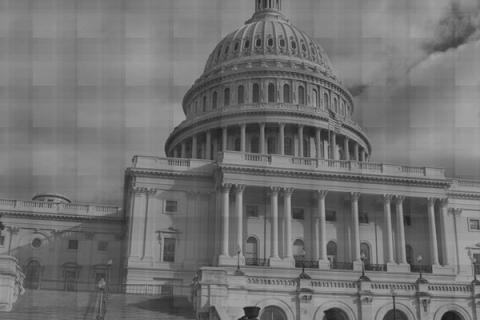On Sunday, tens of thousands of New Yorkers took to the streets of Manhattan for a silent march in protest of the NYPD's controversial stop and frisk policy. With the coordination of the NAACP, the march brought together a massive coalition of advocacy organizations, labor unions, community groups, faith-based organizations, and independent activists. By last Friday, nearly 300 separate groups had endorsed and pledged their support for the massive action. Demonstrators gathered in Harlem just north of Central Park early Sunday afternoon and marched down Fifth Avenue in silence to the residence of Mayor Michael Bloomberg on the Upper East Side.
Under the NYPD's stop and frisk policy, police are empowered to stop any individual if they have a reasonable suspicion that the person has committed a crime, is in the process of committing a crime, or is preparing to commit one. They may frisk that individual if they have an articulable reason to believe the person stopped may be armed.
The number of these stops performed by the NYPD against the people of New York has skyrocketed by over 700% in the last ten years, as Mayor Bloomberg's administration has ramped up the program. In 2011, the NYPD reported that it had performed nearly 700,000 stops over the course of the year, up from under 100,000 in 2002.
Supporters of the policy argue that it is necessary to curb violent crime and keep guns off the city's streets. Opponents argue that the policy is racist and represents a severe violation of basic civil liberties and constitutional rights.
In 2003, New York police conducted over 160,000 of these stops and seized 604 guns in the process. In 2011, police performed over 685,000 stops, leading to the seizure of only 780 guns. In over 88% of all stops performed in 2011, no tickets or summons of any kind were issued and no arrests were made.
The vast majority of those who are stopped under the program are black and Latino, accounting for 88% of all stops last year. Nearly 42% of all stops last year were of African American or Latino males between the ages of 14 and 24, though they account for under 5% of the city's population. Indeed, in 2011, the NYPD performed more stops against young black and Latino males than there are young black and Latino males in the entire city. In 90% of these cases, there were no citations for unlawful activity.
Let's consider these facts once more. The lawful basis for these stops is the assertion of reasonable suspicion that a crime has been or may be committed. Yet, nearly 90% of the time there is no underlying criminal act that could form the basis of such a suspicion, and the suspicions disproportionately single out young minorities. Does that sound reasonable to you?
The Father's Day silent march appears to be the biggest action to date in an ongoing grassroots campaign against the stop and frisk program that began in last October with targeted acts of civil disobedience by social justice advocates, community groups, third party organizations, and Occupy Wall Street activists.
Addressing the growing opposition to stop and frisk on Sunday, Mayor Bloomberg stated that he is open to “mending” the policy.

